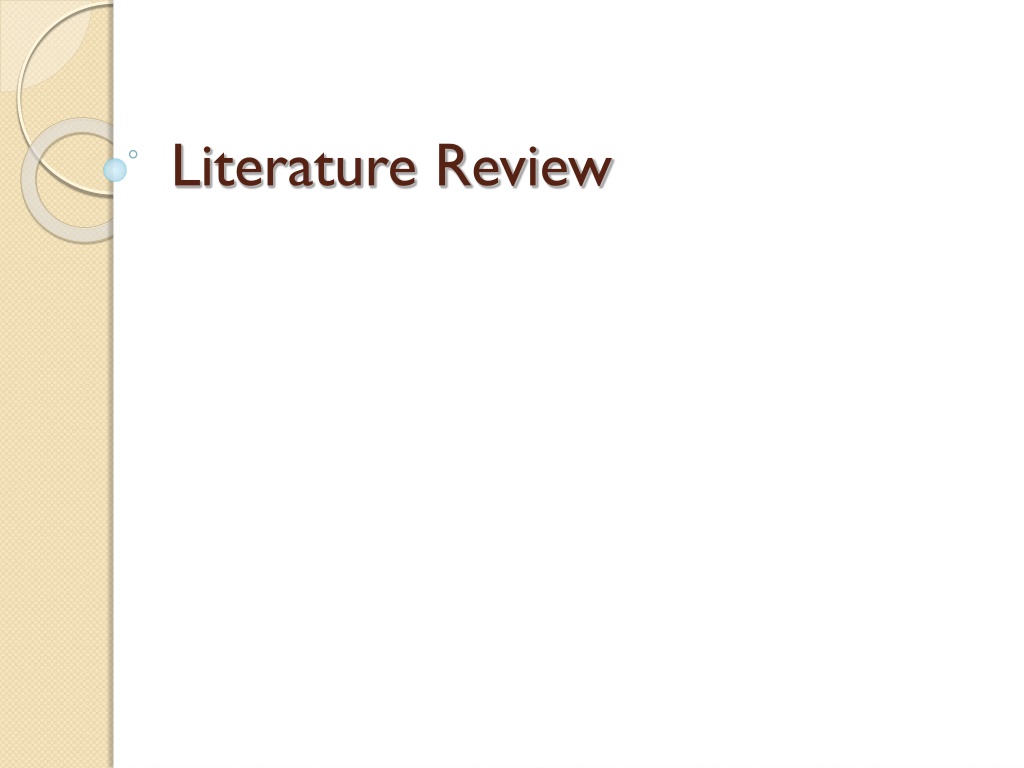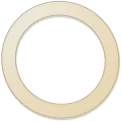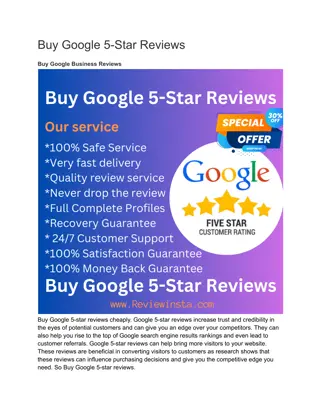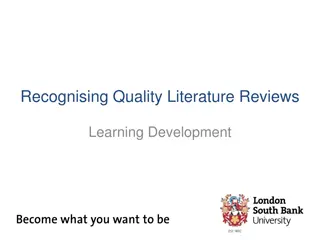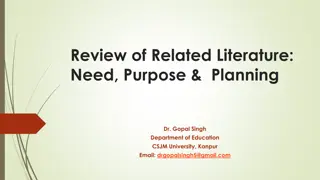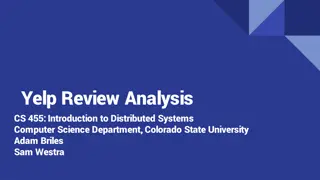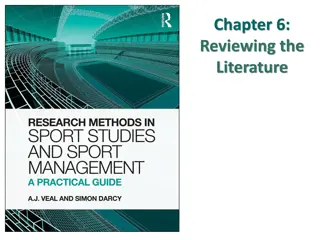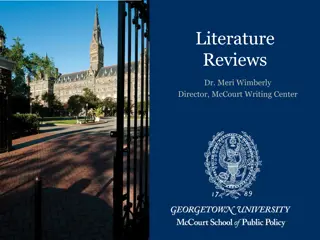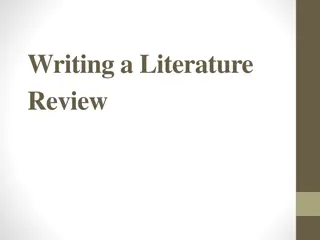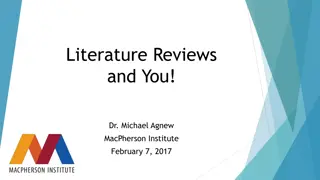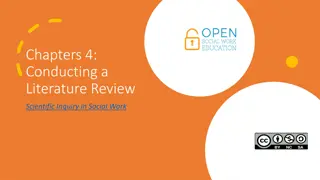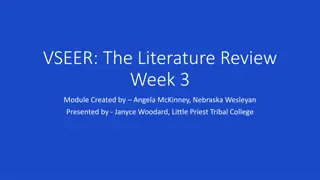The Essence of Literature Reviews in Research
Exploring the significance and nuances of literature reviews as an essential component of academic research, focusing on key aspects such as sources, analysis, and differentiation from research papers.
Download Presentation

Please find below an Image/Link to download the presentation.
The content on the website is provided AS IS for your information and personal use only. It may not be sold, licensed, or shared on other websites without obtaining consent from the author.If you encounter any issues during the download, it is possible that the publisher has removed the file from their server.
You are allowed to download the files provided on this website for personal or commercial use, subject to the condition that they are used lawfully. All files are the property of their respective owners.
The content on the website is provided AS IS for your information and personal use only. It may not be sold, licensed, or shared on other websites without obtaining consent from the author.
E N D
Presentation Transcript
Requirements Provide a 3 page (single spaced) document (in the same IEEE style used for the LaTeX tutorial) Your review must discuss a minimum of 3 journal articles (conference proceedings are also acceptable) You can reference relevant non-journal sources in your writing as well, but the central focus should be these three articles.
What is a Literature Review? Whatever the subject of your final project, others have likely written about it. Research results have been published in journals and conference proceedings. Experts in the field have informed opinions on the subject. Your subject has a history and/or exists within the context of a larger field. A Literature Review analyzes and synthesizes the existing writing on a particular subject
What makes a Literature Review different from a research paper? A literature review is often part of a research paper Ideally, a research paper should start with the author researching the existing literature. To explore the experts understanding of the subject. To identify common conclusions. To identify any contradictions or controversies. In a research paper, after analyzing the existing literature, the author presents an argument, backed up by original or cited research. A Literature Review demonstrates this analysis.
What isnt a Literature Review? A Literature Review is not about your own argument, your own opinion, or your own personal experience regarding a subject. Yes, your own biases and opinions may dictate what sources you choose to review and how you choose to view them, but the goal is to choose good sources and to treat them fairly.
Possible approaches You can: Provide a well-sourced history of your subject. Describe current research related to your subject. Talk about practical applications involving your subject. Discuss controversies involving your subject. Important: do not try all (or even more than one, in most cases) of these approaches in the same review. Pick a clear angle and stick with it.
More resources on writing a Literature Review Writing Center at UNC Chapel Hill http://writingcenter.unc.edu/handouts/literature- reviews/ Ten Simple Rules for Writing a Literature Review https://www.ncbi.nlm.nih.gov/pmc/articles/PMC37154 43/
Will this be part of my Final Project? It can be, but it doesn t have to be. You are highly encouraged to write this with the final project in mind. I recommend that you write something that would be useful as part of your final project. This will also save you some work at the end of the quarter. Use this as an opportunity to collect information, perspectives, and useful figures and illustrations about your subject. If your Final Project is not approved or you change projects, you won t have to write a new Literature Review. But your Review must at least be relevant to your original project proposal.
Citing reliable sources What makes a source reliable? Is it fact checked? Peer reviewed? Written by a noted expert in the field? Published in a respected magazine? Or is it just a website created by an opinionated hobbyist?
Best sources: Peer reviewed journals. Many full-text academic journals are available on the Web of Science Check out the CSE 185 https://guides.library.ucsc.edu/cse185 Select Articles , then Web of Science Full access is available on campus through eduroam. Off campus, there are other ways to access articles: https://guides.library.ucsc.edu/offcampusaccess
Need research help? Talk to your friendly local reference librarian. Both the Science & Engineering Library and McHenry. Or call one on the phone Call 831-459-5171 (Mon-Fri 1pm 5pm) Or get free help from an expert through chat or email. https://guides.library.ucsc.edu/ask
IEEE Style Guide This project should be formatted using the IEEE style guide You may use LaTeX as you did in the earlier tutorial You are also welcome to use an IEEE document template, such as: http://people.ucsc.edu/~gmoulds/CMPE185/IEEE_Template.doc Google doc version: https://drive.google.com/file/d/1uSl2mx9J-MC81QvIFjRZK- afyDaZkX7l/view?usp=sharing Make sure citations are in proper format Example citation[1] [1] R. L. Myer, Parametric oscillators and nonlinear materials, in Nonlinear Optics, vol. 4, P. G. Harper and B. S. Wherret, Eds. San Francisco, CA: Academic, 1977, pp. 47-160.
